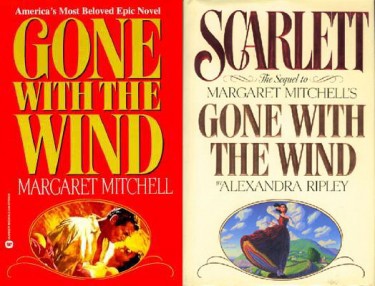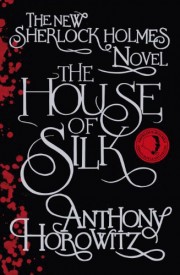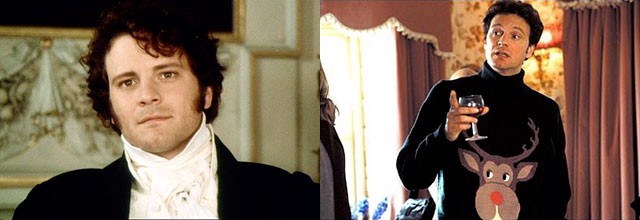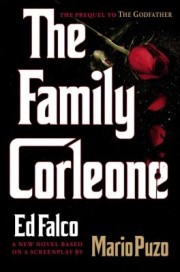Famous Novels Take Two: Judging The Sequels
Famous Novels Take Two: Judging The Sequels

This post is brought to you by got milk? Find out what else is fake at scienceofimitationmilk.com.
When I was little, I had a typewriter my parents got at a garage sale for about three dollars, plus the cost in shoe leather of tracking down a place to buy those awful inky ribbon things. And, being seven or eight, I knew that there was no point in writing my own book, because it wouldn’t be any good, so I instead attempted to copy out The Lord of the Rings. I never got more than a third of a chapter in, due to my belief that any typo required yanking my current page out, crumpling it into an elaborate ball, and tossing it over my shoulder like a prepubescent Ring Lardner. It’s not like I didn’t already own a copy, I just wanted to burn it into my body, Dolores Umbridge-fashion.
In most people, this impulse eventually translates into “gosh, wouldn’t it be nice if there was another book I could read with these same protagonists,” and in a very few people, it becomes “you know, I could just write that myself.” Of those few people, any born after the mid-1980s or so become prolific fan-fictioneers. Those born prior look for either a good agent or a better lawyer, and turn their hand to the art of the sequel.
As a form of creative expression, aping the tone and style and universe of an existing (or deceased) author can be a good apprenticeship. Many of the 20th-century greats of Russian literature honed their abilities through a few decades of translation work, and numerous budding writers can testify to the usefulness of trying to write a “Carver story,” an “O’Connor story,” or a “Barthelme story,” while numerous budding writers-turned-instructors can testify to the usefulness of assigning one.
When it comes to a novel-length third-party sequel, we’re really talking about a few distinct categories.
ESTATE-AUTHORIZED SEQUELS

Having the formal stamp of approval from the original author’s representatives can be a double-edged sword. On one hand, you’re not going to get drawn into a nasty lawsuit, on the other hand… it makes you look a little hack-y, and drastically dials back your ability to be at all subversive with the project. This is what separates Scarlett and Rhett Butler’s People, from The Wind Done Gone. The Wind Done Gone wasn’t much of a book, but it was more likely to be discussed seriously than the shiny pre-screened variants. Nor, moreover, does anyone pay much attention to the innumerable rubber-stamped James Bond novels pulped out with some regularity by “Ian Fleming Publications.”
Not to say that all authorized texts are dull! The House of Silk, Anthony Horowitz’s approved full-length Sherlock Holmes’ novel was excellently received, as was Robert Parker’s Perchance to Dream, a pitch-perfect follow-up to Raymond Chandler’s The Big Sleep. The unfortunately titled And Another Thing was a perfectly decent attempt at a sixth Douglas Adams novel, though it probably took quite the set of balls to risk upsetting the apple-cart of unhinged, towel-toting fans.
Edith Wharton’s The Buccaneers is a unique case, having been finished (quite satisfactorily) after Wharton’s death by Marion Mainwaring, in what can be described more as a labor of love than any attempt to hitch her star to an acclaimed writer.
Most authentic of the estate-authorized novels? Perchance to Dream.
CLASSY/QUIRKY/RETRO ENOUGH TO GET AWAY WITH IT

Mr. Darcy and Mr. Darcy.
If you want to go rogue, charm, time, and the public domain are your best weapons. There is a reason it’s Pride and Prejudice and Zombies, not We Need to Talk About Kevin’s Zombies, you know? Jane Austen is wonderfully fair game, which is why we have the zombies and the sea-monsters, but also why we have Bridget Jones and Death Comes to Pemberley and An Assembly Such as This, and, well, this whole hot mess right here. A related example being Laurie King’s adorable Mary Sue-ish Sherlock Holmes spin-offs, beginning with The Beekeeper’s Apprentice. Who could possibly object?
Most authentic of the sub-litigious rogue novels? Death Comes to Pemberley.
BETTER CALL SAUL

As a former child, you may be familiar with the adage: “it’s easier to ask forgiveness than permission.” This is not something that entertainment lawyers teach their children, for obvious reasons. Although they finally reached an agreement, J.D. Salinger’s people fought to keep 60 Years Later: Coming Through the Rye out of your hands (ugh, who wants to read about an aging Holden anyway?) Not to mention that American public domain won’t keep you out of trouble in France, where artists possess a “moral right” to their work into (arguably) perpetuity. Victor Hugo’s great-grandchildren went to the (sorry) barricades to prevent “Cosette” from rehabilitating Javert.
Heck, sometimes the estate winds up in court. Paramount is suing Mario Puzo’s estate for attempting to publish The Family Corleone, an utterly-authorized sequel penned by Mario’s own son, claiming to possess the eternal rights to all things Corleone. Insert your own horse-head joke here, and be careful to read the fine print, okay?
Most authentic of the forbidden fruit novels? We would never read ANYTHING that wasn’t scrupulously acceptable, so just re-read Les Miserables, okay?
If this is your bag, and you want to garner lasting acclaim without facing a future of ghostwriting celebrity memoirs, your best bet is to toe the “homage” line. Sabbath’s Theater is King Lear, of course, while On Beauty is E.M. Forster, and The Hours is a decent way to skid around being afraid of Virginia Woolf’s estate’s lawyers. Or, honestly, stick with poetry and no one can say a goddamn thing to you about it. Write a book of poems about Edward Hopper paintings! Write a book of poems about Emmylou Harris songs! Write a book of poems about Frank O’Hara’s poems! Good luck to you in all your (semi-) creative endeavors. And stay out of France.
Sponsored posts are purely editorial content that we are pleased to have presented by a participating sponsor, advertisers do not produce the content.
Nicole Cliffe is the books editor of The Hairpin, The Awl’s Classic Trash columnist, and the proprietress of Lazy Self-Indulgent Book Reviews.
